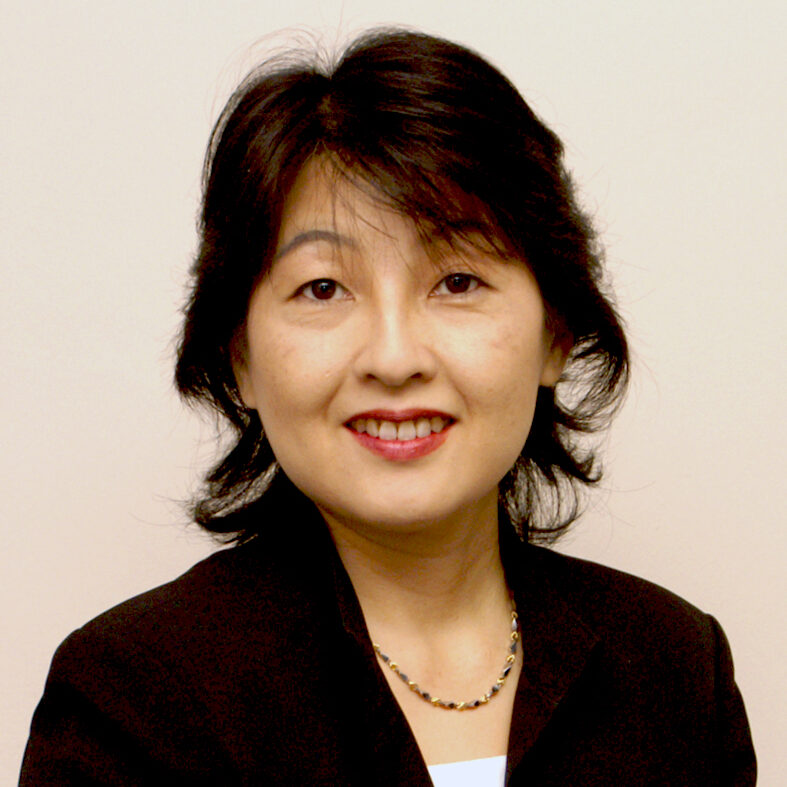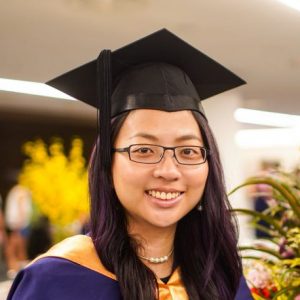Why The Centre for
Language Studies?
The Centre for Language Studies was established in 2001 to serve the foreign language needs of the Faculty of Arts and Social Sciences.
Today, it has over 80 full-time and part-time faculty members who teaches thirteen different languages - Arabic, Bahasa Indonesia, Chinese, French, German, Hindi, Japanese, Korean, Malay, Spanish, Tamil, Thai and Vietnamese - to approximately over 3,300 students per semester.
Having produced numerous teaching award winners in recent years, the Centre is firmly committed to excellence in teaching and seeks to maintain, and improve, its high teaching standards by engaging in research and facilitating professional development in foreign language teaching.


Our Head of Department
Associate Professor Izumi Walker joined the Department of Japanese Studies in September 2000, served as the Convenor of the Japanese Language Programme until 2019 and currently the Director of the Centre for Language Studies. She holds a PhD in Japanese Applied Linguistics from Waseda University in Tokyo and an MSc in Applied Linguistics from Edinburgh University in the United Kingdom. Prior to relocating to Singapore, she held a position as a lecturer at universities in the USA, the UK, and Japan. She has experience teaching students at all levels, from elementary school to an MBA program. Her current areas of study include project-based learning, business Japanese education, pedagogy for "Taigu communication," and the use of media materials in language instruction. She was awarded for Faculty Teaching Excellence Awards continuously from 2004 through 2009, in 2016 and in 2020, NUS Excellent Teacher Award in 2004, 2008, 2010, and 2016. She served on an Excellent Teacher Award Honour Roll, the Faculty Excellent Teacher Selection Committee as well as University Educator Track Promotion Committee.
Curriculum
For students admitted from AY2021-2022 onwards, to graduate with a Minor from Centre for Language Studies, students have to accumulate 20 modular credits (MCs) made up of:
- either 16 MCs (i.e. at least 4 modules) from modules of the same language plus 4 MCs from a recognised module from that language track
- or 20 MCs from the same language
The accumulated MCs must include a 6th or higher-level language module (to ensure that all students graduating with a Language Studies Minor attain at least an advanced level of competency). Please note that the offer of a 6th or higher-level language module is subject to the discretion of CLS.
Note the following:
- All 20 MCs of the Minor requirements must be earned from modules read at NUS; Any module read outside NUS (e.g., “Department Exchange Modules”) will not count towards the fulfilment of a Minor in Language Studies.
- In order to take the lowest Level-1000 CLS language module, the student must not have any prior knowledge of the language concerned.
- Students with prior knowledge who are placed directly in any one of the following language modules below will not be able to meet the 16 MCs requirements.
| Arabic, Bahasa Indonesia, Chinese, Hindi, Malay, or Vietnamese | Module codes ending with 3202, 4201 or 4202 |
| French, German, Korean, Spanish, or Thai | Module codes ending with 4202, 4203 or 4204 |
| Japanese* | LAJ4203 Newspaper Reading LAJ4205 Expository Writing and Public Speaking |
Students with such advanced prior knowledge in one language are strongly encouraged to work towards a minor in another language offered by the Centre instead.
For queries relating to Minor in Language Studies, contact our programme convenors.
Please refer to the website of the university's Registrar's Office for general guidelines on Minor requirements.
Students will have to take the necessary steps to ensure that they complete the graduation requirements within the normal candidature.
Under the Continuing Professional Education (CPE) initiative, graduating students who have completed ONLY some of the module requirements before graduating may also return to take up the sixth and higher level modules and to stack it to what they had previously completed in order to obtain a "Specialist Certificate".
* Special note for Japanese:
The two highest Japanese language modules are Level-4000 modules, and just below them are three equivalent-level (i.e., 6th level) modules not precluding each other, namely LAJ3202 Japanese 6, LAJ 3204 Business Japanese 1 and LAJ3205 Media Japanese (“6th level language modules”). Therefore, it is still possible for a student placed directly in any 6th level language module to meet the requirements.
As an illustration, a student with prior knowledge of Japanese placed directly in a 6th level language will have the three following options:
- EITHER complete all three 6th level language modules, plus both Level-4000 language modules;
- OR complete all three 6th level language modules, plus one Level-4000 language module and one recognised non-language module;
- OR complete two 6th level language modules, plus both Level-4000 modules and one recognised non-language module.
Admissions
Each individual language concentration has a different set of entry requirements and eligibility conditions. They are depicted below in order of their language concentrations.
Students with previous knowledge of the language that they intend to study must declare this. They are required to take a test for advance placement and may be admitted into a module at a higher level. Students may contact the CLS for further information on the placement tests.
*Click on the specific language to view admission requirements and eligibility conditions.
Why CHS?
The College of Humanities and Sciences (CHS) is the enhanced undergraduate experience for students of the Faculty of Arts & Social Sciences (FASS) and the Faculty of Science (FOS) at the National University of Singapore.
Testimonials
Cheryl Lin
Senior Journalist, Channel NewsAsia
Communications and New Media '17 + French and Spanish
Currently a familiar face as a journalist on Channel NewsAsia, Cheryl majored in Communications and New Media but also studied French and Spanish at the NUS Centre for Language Studies.
What started as a casual interest in French language and culture became a major part of her undergraduate studies, as she took the language all the way up to level 6. For Cheryl, French lessons were her favourite ones in university, as they were always structured, well-paced and interactive. It is no surprise that her foreign language skills proved useful when she was producing international news, as there would sometimes be soundbites and information coming in in French. "Knowing the language meant I was able to help translate if needed."
Cheryl's wildest dream is to be an international correspondent in a foreign country…, or to gather enough experience to become a media trainer or consultant. Perhaps one day Cheryl would become a familiar face on TV in France or some other French speaking country!


Khoo Choon Yen
Asia Research Institute
Sociology '13 + Bahasa Indonesia
Choon Yen picked up Bahasa Indonesia at the Centre for Language Studies, and the acquired linguistic skills perfectly complemented her studies in BSocSci (Hons) in Sociology (2013) and MSocSci in Geography (2018).
Her knowledge of Indonesia and its language proved all the more useful when Choon Yen seized an opportunity to work full-time, upon graduation, at the NUS Asia Research Institute (ARI), on a research project that allowed her to dive deeper into the lives of migrant workers and their migration journeys. "I was quickly provided an extension of my contract as my Indonesian proficiency proved useful in the new projects that were commissioned under the Consortium." Her involvement in the project (commissioned by the Migrating out of Poverty Research Programme Consortium) led her to pursue a part-time Masters in Geography to complement her foray into migration studies at work. By the end of her time at ARI, she had completed four research projects related to Indonesia, gender, migration, poverty alleviation, intra-household dynamics and youth aspirations.
Majoring in Sociology was an eye-opener to the workings of the world for her, while the regional perspective offered by her immersion in the Indonesian language and culture further enriched her perspectives. She fondly remembers Project Day, an essential component of the elementary module of Bahasa Indonesia (LAB1201), during which students were tasked to put up performances and serve homemade foods that they learnt from the teachers. She was introduced to the richness of Indonesian way of life through song, dance, drama and food. "That night, I fell in love with lemper (chicken stuffed sticky rice roll) whilst listening to beautiful music from the angklung ensemble."

